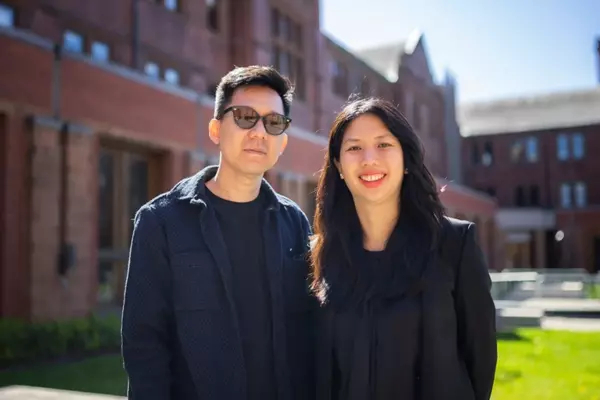Elizabeth Wijaya

Biography
Elizabeth Wijaya works at the intersection of cinema, philosophy, and area studies. She is especially interested in the material and symbolic entanglements between East Asia and Southeast Asia cinema. Her work emphasizes a multimethodological approach, which is attentive to media forms, ethnographic detail, material realities, archival practices, international networks, and interdisciplinary modes of theorization. She is building an online-accessible collection of Asian short films with UTM library. She is working on her first monograph “Luminous Flesh: The Visible and Invisible Question of Contemporary Diasporic Chinese Cinemas” and her SSHRC Insight Development Grant-funded research project, "Luminous Waves: Visions and Networks of Collaboration in Contemporary Southeast Asian Independent Cinema." She is a co-editor of World Picture Journal.
She is also a co-founder of E&W Films. She is an Associate Producer of Taste (2021) directed by Lê Bảo, which received the Special Jury Award of the Encounters Competition at the 71st Berlinale Film Festival, and Associate Producer of Viet and Nam (2024), directed by Trương Minh Quý, which premiered at the Un Certain Regard of the Cannes Film Festival 2024. She is also Co-Producer of Mongrel, which premiered at the Director’s Fortnight of the Cannes Film Festival 2024, and received a Caméra D’Or Special Mention. Mongrel has been nominated in seven categories in the Taipei Golden Horse Awards 2024.
She received her PhD from the Department of Comparative Literature at Cornell University, where she was affiliated with the East and Southeast Asian Programs. She completed her BA and MA at the National University of Singapore under the ASEAN Scholarship and NUS Research Scholarship, respectively. For 2018–2019, she was a President’s Postdoctoral Fellow at the Department of Asian and Middle Eastern Studies, University of Minnesota (Twin Cities). At the University of Toronto, She received the Connaught New Researcher Award in 2020. For 2020-2021, she is the convenor of “Mediating Race, Reimagining Geopolitics,” JHI-UTM Seminar.
Select publications
-
Wijaya, Elizabeth (2024). “Touch, Flesh, Wound and the Caress of the Screen.” In Erotics of Deconstruction: Auto-affections of the Living, edited by Lynn Turner. Edinburgh University Press. 134– 152.
-
Wijaya, Elizabeth (2024). “Memories of the Future: Speculative Cold War Histories in Yosep Anggi Noen's The Science of Fictions and Daniel Hui's Snakeskin.” In Asian Cinema and the Cultural Cold War, edited by Sangjoon Lee and Darlene Machell de Leon Espena. Amsterdam University Press. 277–295.
-
Wijaya, Elizabeth (2024). “Desiring Nanyang, Nation, and Home: Fictions of Belonging in Two Rediscovered Post-war Films from Singapore.” In Routledge Companion to Asian Cinema. Edited by Sangjoon Lee, Intan Paramaditha, Debashree Mukerjee and Zhang Zhen. Routledge, 144–155.
-
Wijaya, Elizabeth (2023). “Insomniac Nights and an Aesthetics of Passivity: On Tsai Ming-liang’s Walker Series.” Verge: Studies in Global Asias., 9(1): 134–162.
-
Wijaya, Elizabeth (2023). “A History of Forgetting.” Cultural Critique, 119: 197–209.
-
Wijaya, Elizabeth (2021). Screening Today: The Visible and Invisible Worlds of Tsai Ming-liang’s Goodbye, Dragon Inn. Discourse, 43(1), 65-97.
- Wijaya, Elizabeth (2020). Three ecologies of cinema, migration, and the sea: Anchorage Prohibited and Luzon. In Ecology and Chinese-Language Cinema (1st ed., Vol. 1, pp. 67–82). Routledge.
- Wijaya, Elizabeth (2016).To See Die, Again: The Act of Filming and The Act of Killing. Parallax, 22(1), 81-95.
- David Coughlan, Christoforos Diakoulakis, David Huddart & Elizabeth Wijaya (2016). Introduction: Survival of the Death Sentence. Parallax, 22(1), 1-4.
- Wijaya, Elizabeth (2012). To Learn to Live with Spectral Justice: Derrida–Levinas. Derrida Today, 5(2), 232-247.

